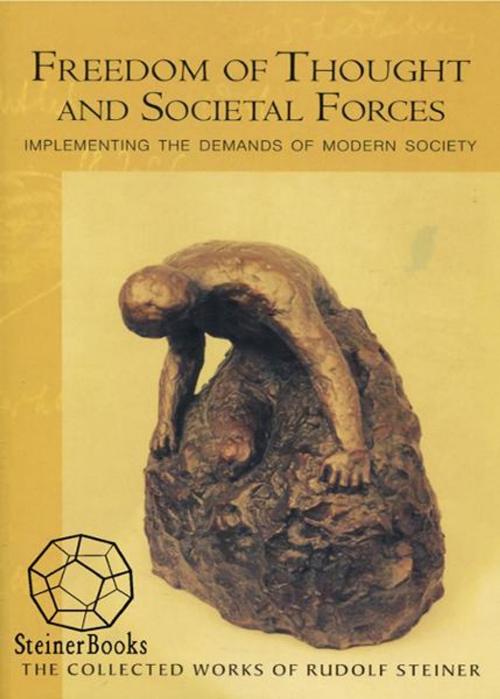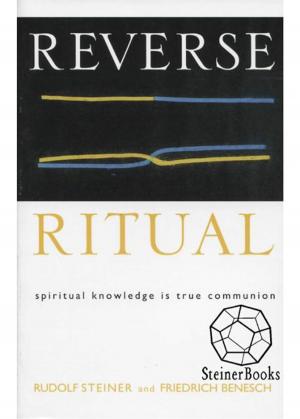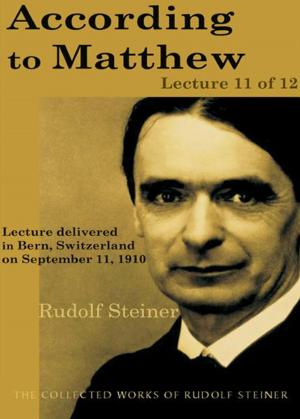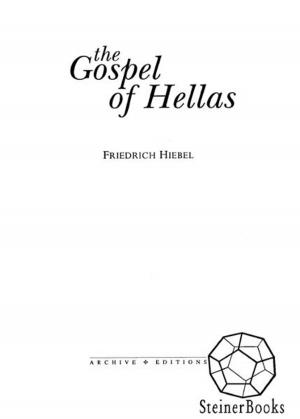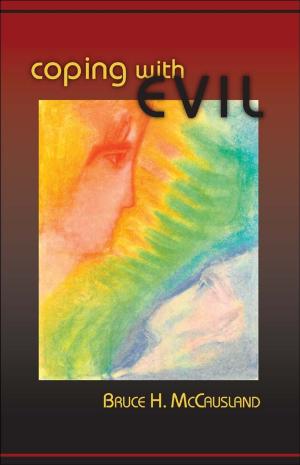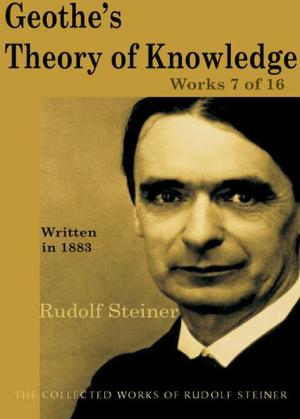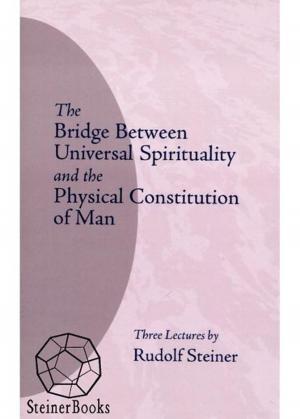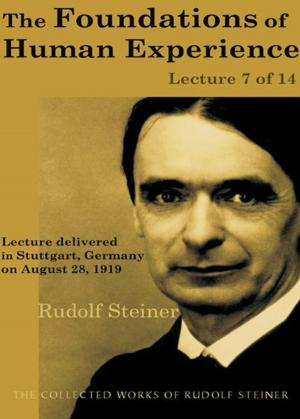Freedom of Thought and Societal Forces: Implementing the Demands of Modern Society
Nonfiction, Religion & Spirituality, Philosophy, Mind & Body| Author: | Rudolf Steiner, Christopher Bamford | ISBN: | 9781621511335 |
| Publisher: | Steinerbooks | Publication: | October 1, 2008 |
| Imprint: | SteinerBooks, Collected Works 333 | Language: | English |
| Author: | Rudolf Steiner, Christopher Bamford |
| ISBN: | 9781621511335 |
| Publisher: | Steinerbooks |
| Publication: | October 1, 2008 |
| Imprint: | SteinerBooks, Collected Works 333 |
| Language: | English |
Freedom of Thought and Societal Forces offers a broad overview of Steiners fresh thinking on what he called the threefold social order. He acknowledged that the demand for social change derives above all from the working class, whom industrialization had forced into a kind of indentured life dominated by economics. From Steiners perspective, the underlying issue is not just economic, however, but also spiritual or culturalculture and the cultured classes have become estranged from real life. Society needed a free culture that includes all classes. It also needs to shift labor into the legal sphere of rights, the only place where workers can find real freedom in society. Capital, too, needs to be liberated from egotism and allowed, like goods, to circulate freely. Above all, Steiner understood that social realities cannot be separated from the spiritual realities of human existence. From this perspective, we lack knowledge of ourselves as spiritual beings, and thinking has become abstract. To remedy this, we must first acknowledge it and then develop modesty and humility. Next we must increase our capacity to love one another and the world. Approaching this reality from another side, we see that what ordinary individual thinking afflicts culture in general, which becomes removed from reality. Culture, like thinking, must become alive and universally human. This is impossible, however, unless we develop what Steiner calls freedom of thought. Authentic freedom of thought is always ethical and overcomes egotism. Indeed, a more general exercise of freedom in thought, as Steiner conceives it, provides a way through the twin dangers of materialism and abstractionthat is, through ahrimanic and luciferic worldviewswhich together threaten society in both the narrow sense through nationalism and globally through geopolitics.
Freedom of Thought and Societal Forces offers a broad overview of Steiners fresh thinking on what he called the threefold social order. He acknowledged that the demand for social change derives above all from the working class, whom industrialization had forced into a kind of indentured life dominated by economics. From Steiners perspective, the underlying issue is not just economic, however, but also spiritual or culturalculture and the cultured classes have become estranged from real life. Society needed a free culture that includes all classes. It also needs to shift labor into the legal sphere of rights, the only place where workers can find real freedom in society. Capital, too, needs to be liberated from egotism and allowed, like goods, to circulate freely. Above all, Steiner understood that social realities cannot be separated from the spiritual realities of human existence. From this perspective, we lack knowledge of ourselves as spiritual beings, and thinking has become abstract. To remedy this, we must first acknowledge it and then develop modesty and humility. Next we must increase our capacity to love one another and the world. Approaching this reality from another side, we see that what ordinary individual thinking afflicts culture in general, which becomes removed from reality. Culture, like thinking, must become alive and universally human. This is impossible, however, unless we develop what Steiner calls freedom of thought. Authentic freedom of thought is always ethical and overcomes egotism. Indeed, a more general exercise of freedom in thought, as Steiner conceives it, provides a way through the twin dangers of materialism and abstractionthat is, through ahrimanic and luciferic worldviewswhich together threaten society in both the narrow sense through nationalism and globally through geopolitics.
